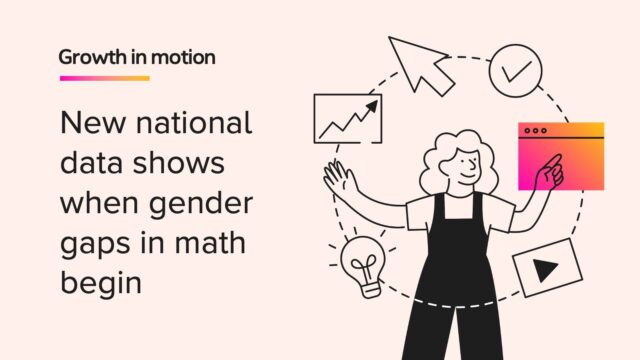
Get a bead on mathematics in fashion design
In the "Math Meets Fashion" episode of Math at Work, Jessalyn (14), Drew (16), and Robin (18) explore math in the fashion industry by meeting with Tim Gunn, former co-host of Project Runway and current co-host of Making the Cut, and Diane von Furstenberg, legendary fashion designer and president of the Council of Fashion Designers of America.
Want to learn the real story behind math in fashion design? Watch this video to explore how the two fields come together and share it with your students! Then, take a look at the lessons below that give students hands-on experience with related math concepts.
The Math at Work web series features industry leaders who work directly with real students to demonstrate the industry-spanning power and importance of real-world math.
This episode of Math at Work is hosted by Tim Gunn and spotlights aspiring fashion designers Jessalyn, Robin, and Drew. Drew needs to figure out measurements for a reversible cape; Robin wants to find out whether she can afford the fabric she wants for an athletic outfit; and Jessalyn has to stay within budget while creating a dress from two fabrics with different prices.
In addition to connecting with Tim Gunn, students get personal guidance from Diane von Furstenberg, one of fashion’s top designers. They also hear expert advice from Manil Suri, professor of mathematics at the University of Maryland. Plus, they learn how to calculate costs and measurements from Kim Agin, a former math teacher.
Try these ready-to-use lessons
Does fashion designing require math? Have students complete these lessons to decide for themselves. Then, consider asking them to come up with a math-based fashion idea of their own!
Lesson 1: Epic Scale
In this activity for Grades 5–7, students use a ratio to scale measurements from a drawing to a life-sized sewing pattern.
Lesson 2: Ready to Budget
In this activity for Grades 5–6, students convert inches to yards and multiply fractions by whole numbers.
Lesson 3: Design Division
In this activity for Grades 5–7, students solve a problem involving two quantities at different unit prices by dividing fractions.
Lesson 4: Percent Markups
In this activity for Grades 6–7, students identify percent markups of a whole and calculate a final sale price.
Use these lessons to spark students' interest in math-related careers and give them the opportunity to explore the connections between math and fashion.
***
Learn more about the Math at Work web series, an HMH effort where industry leaders work with real students to demonstrate the importance of learning math.
This blog post, originally published in 2020, has been updated for 2025.
Get our FREE guide “Optimizing the Math Classroom: 6 Best Practices.”
















